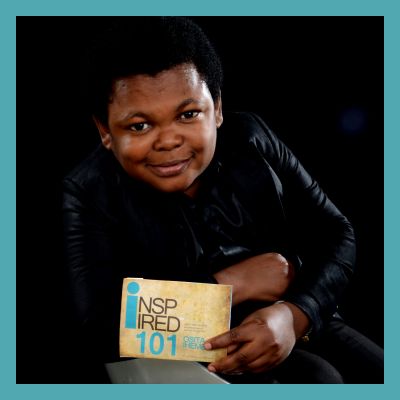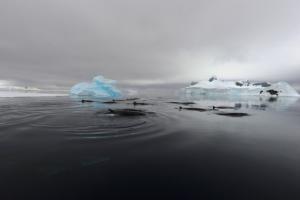Tomislav Perko is the first to admit that his short-lived career as a stockbroker was an epic disaster.
He stumbled into the job in his native
Zagreb, Croatia in 2007 when he was only 23. The thrill of chasing the
market was addictive, and the fact that he was earning as much as
$10,000 a month didn’t hurt either. At the time, the youth unemployment
rate in Croatia was more than 20% and he was easily out-earning all of
his peers.
“I had my own apartment. I bought
everything I wanted, went to all the parties, all the restaurants,” says
Perko, who spoke exclusively with Yahoo Finance. “I was always thinking
money is what makes you successful. I thought that was what I was
supposed to do my entire life.”
He was young,
wealthy, and (not unsurprisingly) a little cocky. He eventually
convinced several family members and friends to pool about $30,000 of
their savings and let him invest it in the market himself.
“I told them they could not lose,” he says. “In those days, you couldn’t lose.”
That
was until the 2008 financial crisis hit the U.S. It didn’t take long
before the ripple effect extended overseas. Along with all of his
clients’ portfolios, Perko’s friends' and family’s savings turned to ash
right before his eyes. Soon enough, layoffs swept through his office.
“I
couldn’t really stay there and look at red screens every day and
nervous clients calling me non-stop,” he says. In early 2009, he decided
to quit.
“1,000 days of summer”
Finished
with the world of finance, Perko found himself with no savings and more
than $30,000 in debt. Seemingly overnight, youth unemployment rates in
Croatia skyrocketed to nearly 50%. He was lucky to find work at a juice
bar and waited tables on the side to make ends meet.
"It was completely a change of my lifestyle,” says Perko, now 29. “That was my new beginning.”
By chance, he and a friend ran into a Frenchman who was traveling through Europe using a website called CouchSurfing.org.
The site is a global social networking platform that lets travelers
link up with people willing to offer them lodging at their home for
free. Perko offered him a place to crash and in less than a year, he
went on to host more than 150 other couch surfers from around the world.
“By
listening to their stories and realizing that it is possible to travel
with almost no money, I decided to try it out,” he says. “I went on a
4-day trip to Bulgaria. There was no going back after that.”
Perko,
who had studied tourism in college, began planning a round-the-world
trip. He chose warm climates —the Middle East, Asia, Australia, Africa,
Latin America — where he wouldn’t need to bog himself down with heavy
gear and clothing.
There was still the matter of his
five-figure debt to contend with, so he set a seemingly impossible
budget: $10 a day. He had about $1,300 USD to start with. In order to
keep going, decided to find work on the road and try to monetize his new
travel blog. Accomplishing the latter was easier than he expected.
Some
nicely-timed local media attention caught the attention of MasterCard.
The company’s public relations department offered Perko a generous
stipend of $1,000 a month to wear the MasterCard logo abroad and plug
them every once in a while on his blog and Facebook page, which eventually attracted more than 25,000 fans.
He took the sponsorship deal but decided to leave the funds untouched.
"After 1,000 days, it would be almost the exact amount of money for me to be able to pay off my debt," he says.
He
officially began his 1,000 days of Summer in Sept. 2011. It took him
about two weeks to hitch-hike his way East to his first destination,
Turkey, where he began an eight-month journey through Asia and the
Middle East, including stops in Pakistan, Iran and Iraq.
Other
than a three-day wait at the border of Pakistan, he moved around with
few complications, usually hitching rides or taking local buses. He
never had a preset limit on how long he'd stay in any given place.
"The rule was always to leave when I want to leave," he says.
To
pick up rides, he usually scribbled the name of his destination on some
paper. Patience is everything. The longest he ever had to hold out for a
lift was seven hours, he says.
"People from 'dangerous' countries like
Iraq, Iran and Pakistan you think they are terrorists, and at the end
they end up being nicest people in the world," he says. "[They're]
willing to give you the last piece of their dinner."
From
the Middle East, he ventured on to India, Nepal, Malaysia, and Thailand
— all places where food and transportation were cheap enough to meet
his budget restrictions.
Sometimes, he lived entirely for free. In Do Gaon, a small village in the Himalayan mountains, he volunteered on a farm in exchange for lodging and food.
"I realized I could travel and it was cheaper than living at home in Croatia," he says.
The best part about Thailand — hitchhiking by boat.
After
wrapping up in Asia, he set his sights on Australia. It was an
expensive trip, so he bided his time until he found a deal on airfare —
$120 one-way to Brisbane on Air Asia.
In
a country where the minimum wage was US $15 an hour, he had one plan
only: find as much work as possible. A friendly local who gave him a
ride happened to be a painter. Less than a day into his trip to
Brisbane, Perko scored a job helping him paint a hotel for $20 an hour.
"After three weeks of working, I had enough to support nine months of traveling," he says.
From
there, he made his way to Melbourne, where he answered a listing for a
kitchen hand at a local restaurant. The wage: $15 an hour.
Of course, he still found plenty of time to play.
Getting
from Australia to his next destination — Africa — would be trickier
than hailing a free ride. He had to find a way to hitchhike across the
Indian Ocean — by boat.
Perko searched for a job on
Findacrew.net,
a site where boat captains can find crews to help out on longer trips
in exchange for free passage. He had zero experience on the open seas,
but luckily Perko managed to talk his way into the three-person crew of a
45-foot yacht.
For
$5 a day to pay for food, he had scored a free 36-day cruise to the
South Africa. Apart from a brief stop in the pristine Cocos Islands and
seven days in exotic Mauritius, it was no pleasure cruise. The first few
days, seasickness rendered him pretty much useless as a crew member.
"The
worst thing was I had no idea what to expect," he says. "I had to sleep
on a small bench in the hallway because there were only two rooms on
the whole boat."
Finally,
Africa. They landed in the coastal city of Durban, South Africa. It was
the beginning of his five-month tour of the continent. He hitchhiked
through Swaziland, Mozambique, Malawi, Tanzania and Kenya over that
time.
When lodging wasn't available, he kept a tent handy and usually could sleep overnight by bustops without being botherd.
In
Kenya, he used his MasterCard slush fund for the first time — for a
noble cause. His father, who hadn't left Croatia since 1991, had long
dreamed of going on a safari. So Perko treated him to a two-week
adventure in Kenya.
"My dad wasn't supportive of me when I started
[this trip]," he says. "That trip [to Kenya] was probably the highlight
of my trip around the world." (His dad's
guest blog post about the experience is a must-read).
"He's still talking about that trip even though it was a year ago," he says.
After
nearly half a year in Africa, Perko was exhausted. He was more than
halfway into his 1,000-day goal, but travel had started to take a toll
physically and mentally. Rather than pack it in completely, he decided
to return home to Croatia with his father and take a much-needed break.
"In the end I realized that this freedom I
was striving for is the freedom to choose what you want to do in that
moment," he says. "If that is to go back home and cut the trip short,
you do that."
Thanks to the popularity of his blog and Facebook page, he had become something of a celebrity in Zagreb — and Croatia — by the time he came home.
He
was home for two months, just enough time to attend his brother's
wedding...and fall in love. When he set out for the final leg of his
journey, in South America, he wasn't traveling alone.
For
10 months, Perko and his new companion, Mare, traveled through Peru and
Ecuador. There, he managed to slow his pace and find time to write a
book about his travels.
Nearing his 950th day of travel,
Perko decided to return to Croatia for the last 50 days, this time
turning his travels into a mini-book tour. He says he's determined to
self-publish (he launched an
IndieGoGo campaign to raise funds) and hopes to speak with people around his country, encouraging them to travel.
As
for that debt, he has managed to whittle it down to about $15,000 so
far and hopes sales of his book will take care of the rest. His
MasterCard deal helped, but the company dropped his sponsorship in
January. He's not too fussed over it.
"I
put so much time and energy and my life into creating my network and my
blog, it would be a shame not to use it," he says. "I want to know the
people who buy my book and connect with them."
--






































 APTER: Were you supportive of them getting into the wrestling business?
APTER: Were you supportive of them getting into the wrestling business?





 Through
his work on the Missouri independents, Murdoch came into contact with
WWE Hall of Famer Harley Race, who was opening his own wrestling school
in Eldon, Mo. The opportunity to train with a former World Champion like
Race was too good to pass up. Murdoch ended up being one of the first
two students to join Race’s camp, which was an interesting feeling for
him.
Through
his work on the Missouri independents, Murdoch came into contact with
WWE Hall of Famer Harley Race, who was opening his own wrestling school
in Eldon, Mo. The opportunity to train with a former World Champion like
Race was too good to pass up. Murdoch ended up being one of the first
two students to join Race’s camp, which was an interesting feeling for
him.